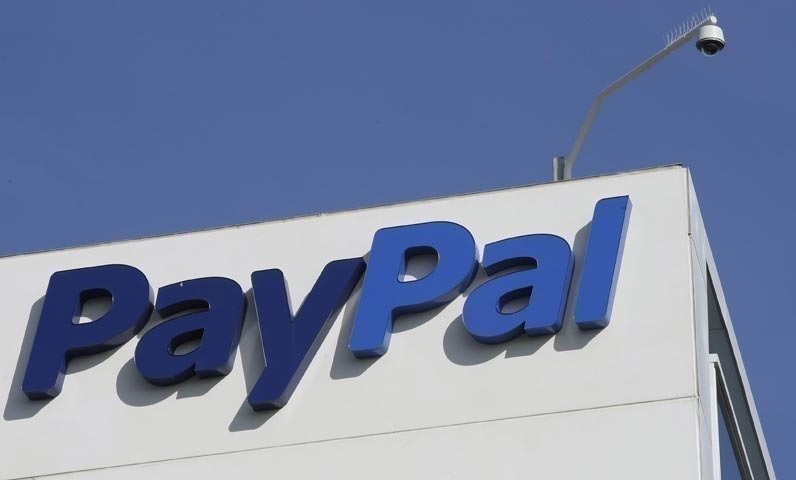The State Bank of Pakistan (SBP) has expressed its readiness to facilitate PayPal’s potential entry into Pakistan, aligning with the ongoing efforts of the Ministry of Information Technology and Telecommunication (MoIT&T). This development marks a significant step forward in addressing long-standing demands from freelancers, e-commerce businesses, and digital entrepreneurs who require seamless international payment solutions.
Pakistan’s Finance Minister, Senator Muhammad Aurangzeb, recently addressed the National Assembly, confirming that MoIT&T is actively leading discussions with PayPal. According to sources, a high-level meeting on December 13, 2024, chaired by the Secretary of MoIT&T, was a key milestone in these negotiations. This renewed engagement has sparked optimism regarding Pakistan’s digital economy and the potential transformation of its online financial ecosystem.
SBP’s Stance: No Regulatory Barriers for PayPal
The SBP has clarified that there are no restrictions on the entry or operations of any international payment gateway, including PayPal, as long as they adhere to Electronic Money Institution (EMI) regulations and Foreign Exchange Regulations. The central bank reaffirmed its commitment to providing necessary facilitation, signaling that regulatory hurdles are not a roadblock to PayPal’s expansion into Pakistan.
Currently, alternative digital payment services such as Payoneer and Skrill operate in Pakistan, offering international payment solutions to freelancers, IT professionals, and e-commerce businesses. Additionally, PayPal PTE, a Singapore-based subsidiary of PayPal Inc., has agreements with four Pakistani banks, enabling remittance transfers to Pakistan under home remittance agreements.
Must Read: SUPARCO Announces Contest to Name Pakistan’s First Lunar Rover Mission
Why Has PayPal Not Entered Pakistan Yet?
Despite multiple attempts over the years to bring PayPal to Pakistan, the company has yet to formally launch its services in the country. Several challenges and concerns may have influenced PayPal’s hesitation, including:
🔹 Regulatory and Compliance Risks – PayPal operates under stringent compliance policies and may have concerns about Pakistan’s financial regulations, cybersecurity framework, and legal environment.
🔹 Profitability Concerns – PayPal may be assessing whether Pakistan’s market size, transaction volume, and economic stability justify its entry.
🔹 Financial Fraud & Money Laundering Risks – Pakistan’s financial sector has been under scrutiny for AML (Anti-Money Laundering) and FATF (Financial Action Task Force) regulations, which could be a factor in PayPal’s cautious approach.
🔹 Existing Payment Solutions – With Payoneer, Skrill, and local payment gateways like Easypaisa and JazzCash, PayPal might be considering whether the Pakistani market needs another player or if it can sustain its business model profitably.
The Demand for PayPal in Pakistan’s Digital Economy
The lack of PayPal’s presence in Pakistan has been a major challenge for freelancers, startups, and online businesses, especially those who rely on international clients for payments. Pakistan ranks among the top five freelancing markets in the world, yet its professionals face limited access to international payment gateways.
The introduction of PayPal in Pakistan would:
✅ Boost the freelance industry, making it easier for IT professionals, designers, and content creators to receive payments.
✅ Support e-commerce businesses, enabling them to engage with global customers more effectively.
✅ Increase foreign exchange inflows, strengthening Pakistan’s digital economy.
✅ Enhance financial inclusion, allowing more individuals and small businesses to participate in the global digital economy.
Government’s Renewed Efforts & Industry Expectations
With SBP signaling regulatory readiness and MoIT&T actively engaging with PayPal, there is renewed hope that this time, the negotiations will yield positive results. Industry experts believe that if PayPal officially enters Pakistan, it could transform the digital financial landscape, making it easier for freelancers and businesses to connect with global markets.
However, the presence of alternative payment services, regulatory factors, and market viability remain key considerations that will influence PayPal’s final decision.
The government’s continuous engagement with PayPal will be closely monitored, and further developments are expected in the coming months. Whether PayPal finally launches in Pakistan or continues to operate through indirect remittance channels, this issue remains a critical point of discussion for Pakistan’s growing digital economy. 🚀💳



